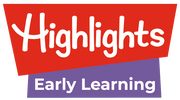What Are the Benefits of Learning Through Play?

Cognitive Development
There’s a reason playing with Legos and dolls is so popular among young children—it’s fun!
Early childhood educators recognize that, when guided appropriately, play-based learning activities enhance a child’s understanding. Building with blocks teaches mathematical concepts and problem solving, while language-driven fun like storytelling and role-playing improves communication abilities, vocabulary expansion, and narrative comprehension.
Studies conducted over the past several decades reveal the close relationship between play in early education and foundational capacities such as memory, oral language, social skills, self-regulation, and success in school.
Miss Andrea Bennett, veteran early childhood educator and founder of the aptly titled program Miss Andrea’s Explorers, points out that another benefits of play-based learning is that it allows children to “explore autonomously…to challenge (their) current level of competence.”
Enrichment opportunities exist within the play-based learning model that provide a more individualized experience for children. To that end, play-based advocates adopt the role of “guide on the side” to facilitate more independent learning.
As Bennett notes, “Opportunities (should be) geared toward developmental levels rather than age. There should be plenty of choices in all learning domains that allow the child to self-direct their learning.” Through guided play, children make more decisions about and, subsequently, take more ownership of their learning. With such freedom to explore, the imaginative and creative possibilities skyrocket, and so does the fun.
A main factor of play-based learning’s effectiveness in the preschool classroom is that it capitalizes on the joy young children already have for learning.
Personal Development
The American Academy of Pediatrics touts play as imperative for healthy brain development: “Play allows children to use their creativity while developing their imagination, dexterity, and physical, cognitive, and emotional strength.”
Through undirected and self-paced play, children discover their interests and strengths. This also presents an important opportunity for educators to see the world from the child’s perspective and meet their needs accordingly.
Sadly, children’s mental health is trending downward in the United States. In 2021, the Centers for Disease Control and Prevention reported more than 40% of students “felt persistently sad or hopeless.” Educators often see the impact of this in their classrooms. As mental health professionals continue attempts to prevent and treat disorders and illnesses, psychiatrist Dr. Stuart Brown, founder of the National Institute of Play, believes part of the prescription is a healthy dose of play.
Brown reports, “the presence or absence of play, particularly in child development, has a great deal to do with competency, resiliency, emotional health [and] brain size.”
During imaginary play, for example, children practice responding to adversity. Whether soothing a pretend crying baby or deciding which child will assume which role, immersing themselves in play-based scenarios exposes children to potential real-life conflicts. Figuring out how to respond to these conflicts is a huge developmental milestone and, quite possibly, one step closer to reducing those persistent feelings of sadness or hopelessness.
Interpersonal Development
Play-based learning fosters tolerance and empathy. Dr. Stuart Brown recognizes the integral role play has on a child’s interpersonal development: “The adaptive tolerance and empathy toward others that is learned in early preschool through rough and tumble play is really a fundamental part of our having tolerance for people who are different than we are.” As children grow and their play experiences evolve, opportunities for kind, compassionate interactions increase.
Other social-emotional skills are developed in tandem with a child’s capacity for play. Dramatic play, for example, has been found to be effective in developing self-regulation as children assume specific roles, interact with others, and plan the play, enhancing their ability to inhibit impulses, act in coordination with others, and make plans.
Self-regulation skills are essential building blocks for a child’s overall wellbeing. Researchers Heatherton and Wagner explain, “The ability to control behavior enables humans to live cooperatively, achieve important goals, and maintain health throughout the life span. Self-regulation allows people to…choose from alternatives, control impulses, inhibit unwanted thoughts, and regulate social behavior.” Through play, children practice the social-emotional skills that help them succeed in the classroom and beyond.
Play-based learning teaches the soft skills necessary to succeed in and out of the classroom. According to Forbes, the most marketable 21st century employees are flexible, empathetic, and good team players, the same skills honed through various types of play. Above all else, though, learning through play is just plain fun!
The more fun the learning is, the more interested the child, and the more potential to mold our youngest minds into passionate life-long learners.
Highlights Preschool With a Purpose is a play-based core curriculum with ready to-go printed materials that can be quickly adapted by teachers of all experience levels and can be used for years to come!
Did you love this article? Get regular updates about preschool products, teaching tips, and ideas to cultivate joyful learning in your classroom. Don't miss a thing - sign up today!
About the Author:

Stephanie Jankowski is an educator and author who lives in Pittsburgh, Pennsylvania. When she's not teaching or writing, she's spending time with her children, Brady, Ella, and Lyla, and marveling at just how short the years really are.

